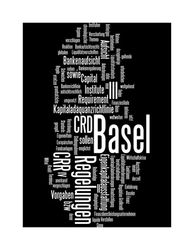Compliance and Regulation Law bilingual Dictionnary

Ideas lead the world, even in the disenchanted period in which we live, for disenchantment is a philosophical Weberian idea. Thus, as the market does, Regulation too often appears as a state of nature, the two being correlated since Regulatory mechanisms is simply the response to a market failure. In reality, regulation obeys a certain conception of the State, the common goods, the benefits attributed to competition, the balance between competition and other principles, the balance between political powers, etc. : So many philosophical ideas.
If we are to relate the Regulation to a more particular philosophy, it would be a philosophy of liberal economy, which posits that in the ordinary, on ordinary goods, supply and demand produce a satisfactory result The supplier and the applicant, the economic life not summarizing the life of the person. But the Regulation is a philosophy because, independently of the technical market failures, to qualify or not an "ordinary" good is a philosophical position. Thus, the training of people or the level of protection of the health of individuals and the assumption of responsibility for the social group and the assumption of responsibility for this service is a political position reflected in the Regulation. This is why regulation can not be confined to economic science, the law of which being merely its translation.
In the same way, regulation, because it is the scientific response to market failures, can not be the pure secular arm of a political will, because economic theory must make its voice heard. Philosophically, Regulation is therefore a complex figure, a triangle whose points are Law, Economics and Politics, none of which can claim to have entirely taken over the others.

Post refers to the economic activity of delivering letters and parcels. Community Law has liberalized postal activity with regard to parcels of a certain size, rapid mail having been the subject of competitive activity for a very long time, while exchanges which were carried out by letters take place today by digital or telephone communications.
However, postal activity is not moving towards the competitive model, in particular because the delivery of mail by the postman contributes to the social bond while the establishment of post offices is an element of regional planning.
But the obligation of national public posts, whatever the country, to have a very large number of post offices, to deliver letters daily, to have a stamp rate that only the State sets ( since we are in a pricing system and not a competitive price), puts these companies at risk. Successive reports on various positions have shown that these, by dint of being forced to meet public service obligations, to which the weight of their employees' pensions largely contributes, are threatened with bankruptcy.
In France, postal activities are regulated by ARCEP.

On markets, prices result in competition. They are "exact" in that they express the meeting of offers and demands, and are sometimes even called "fair prices". Prices are free and constitute the indices of free competition. The simplest and most serious anti-competitive clue is thus abnormal prices. In the same way, the financial market has been qualified by Walras as the "purest market" notably by the quotation which mechanically crystallizes the instantaneousness of the meeting of offers and demands by the mobility of prices.
Freedom of competition and contractual freedom have the price as a paradoxical commun point, since both parties use the autonomy of their will to determine freely the price, an essential element of the contract, and it is nevertheless the market which by their "law" brings out a "market price that each contract reflects.
But this correctness of price does not exclude a price being "unfair" for example when it is too high for the consumer while it is a necessary good, or even a "common good" for which everyone should have a "right of access" and that in fact the rarity of this one has raised the price. The "fair price" can then be equal to 0, when it realizes such a fundamental right of access and that, rather than solvabilizing the demand, the political choice is made to declare free: free museums one day a week , free education, etc.
The amount at which the good is going to be offered to the applicant can then result not so much from a price but from a tariff. One has left the merely competitive market logic to enter the logic of Regulation Law.
This corresponds to two hypotheses. First, when there is a monopoly, by definition the absence of competition precluding the development of a price which presupposes competitive pressure, an amount must be fixed by calculation, possibly by reconstituting a hypothetical market, France has been particularly successful in its capacity to develop pricing models for electricity (eg Ramsey-Boiteux) or for telecommunications (eg Laffont-Tirole calculations). Pricing is an art because the company must be encouraged not to make excessive rents while making the necessary investments. Thus, the British preferred tariffs by price cap, while the French favored pricing by costs, the European institutions admitting both.
Secondly, pricing can be no longer economic or political when it comes to imposing an amount that is not a market price for the benefit of people who would not have the financial means to enter a market. The social tariffs are then aimed at regulated goods only if they contain common goods such as telephone or electricity, each of which must have access, even at very modest income. It is then for the Legislator to concretize subjective rights that he creates, such as the "right to electricity"

Professions play a key role in self-regulatory systems, especially the liberal professions, as soon as they are respected by companies and professionals. Professions are increasingly institutionalized, either by orders or by professions, which form networks or international associations.
In this way, unlike the States, which are challenged by their borders, the professions are adapted to globalization because they develop global associations that adopt common technical standards and ethical charters of behavior.
The other side of the coin is probably procedural, in the transparency of procedures and sanctions, since professional organizations take responsibility for sanctioning their own members themselves, exposing them to capture or even pushing them to conflict of interest. Professions such as banking and finance must now demonstrate that they can create the confidence they need and fuel their industry.
Les professions libérales telles que les avocats, les médecins ou les comptables sont organisées en ordres professionnels et estiment ne pouvoir être réduites à de simples entreprises opérant sur des marchés, car le service qu’elles offrent comprend une dimension humaine et morale, que traduit leur déontologie, sous la surveillance de leur organisation professionnelle interne, à travers notamment en ex ante leur pouvoir d’adopter leurs normes propres de comportement, et en ex post, le pouvoir disciplinaire de leur ordre.
Le droit de la concurrence réfute cette organisation issue de l’Ancien Régime et estime purement et simplement les marchés du droit et de la médecine, les cabinets étant des entreprises qui s’y font concurrence, et ne devant pas s’entendre ni fixer des numerus clausus etc.
Dans la perspective de la Régulation, les professions libérales sont au contraire les plus propices à organiser une autorégulation dans une économie globalisée dès l’instant qu’elles donnent à voir un système de surveillance crédible, et méritent ainsi la confiance des clients, des États et des régulateurs publics.
Prudential Norms / Basel II, Basel III

Prudential standards are safety requirements ("prudence") imposed on companies so that they are solid, this solidity being required because a failure would be catastrophic for the sector to which they belong.
The banking sector is the paragon of the sector in which prudential standards apply, banks and credit institutions being thus protected from the systemic risk of default, the effectiveness of these standards being ensured by the vigilance of the supervisory authorities, the most often the Central Bank.
But prudential and regulatory standards are getting closer and closer, especially since the 2008 global financial crisis.
The “Basel Committee”, a committee bringing together in Basel, under the aegis of the Bank for International Settlements, central bankers and regulators, formulated “recommendations” at the end of the 1980s (Basel I Accord, transposed into law national on the basis of state voluntary service) in order to ensure the stability of the international banking system by setting a minimum amount of bank capital. Initially set at 8% of equity in relation to the loans granted, this "Cooke ratio", the main limit of which was to take into account for this calculation only the total amount of loans distributed and not the customer risk attached to them. . It was consolidated and surrounded by two additional guarantees when the Basel II accord was signed in 2004. This is based on three pillars: the first, based on the “McDonough ratio” (not only taking into account the amount of credits allocated but the probabilities of default of the counterparty and of the credit line), was intended to offer a better assessment of credit risks by authorizing the use of ratings from approved agencies (eg Standard & Poor's) or risk models internal to banks; the second allows the regulator to monitor the application of these standards and to increase the capital requirement if necessary; the third requires the transparency of information communicated by banks to the public on assets and their risk.
Because the crisis has shown that regulation could not be thought of, only in a regulatory way but had to include a part of prudential, through the notion of "macro prudential", the so-called "Basel III" standards were developed. These are of the "regulatory prudential" type, that is to say prudential standards that have become sensitive to the market context and aim, as regulatory standards do, to maintain effective balances in the markets which cannot establish them. by themselves. In particular, the Basel III agreements take into account the risk, not previously considered, of the widespread practice of derivatives (securities presenting significant off-balance sheet risks), involving prudential measures, which had participated in the misinformation. on the risks that may circulate on the markets, thus requiring regulatory measures, market transparency then being the key means pursued by regulation.
Moreover, the Basel III standards revise the definition of “Tier-1 capital” (hard core of banks making it possible to cope with losses linked to a crisis) so that these can no longer be constituted as ordinary shares and profits put in reserves by the bank, thus preventing the risk of contamination of the system.
Systemic risk being an objective of a regulatory nature, we can thus see that the regulatory and prudential, previously clearly distinguished, are linked, come closer, or even merge. However, prudential refers to supervision more than regulation and the supervisory authorities are distinct from the regulatory authorities ...

A public enterprise has long been characterized by the fact that a public person, for example the State or a local public authority, holds the majority of its capital, which is before a formal legal criterion. The European Union Law, in a more concrete perspective, has apprehended it more directly purely and simply as an enterprise, that is to say, an organization having an economic activity on a market, irrespective of the private or public nature of the capital of the company, a legal instrument by which the undertaking enters into the legal under the "decisive influence" of a public person, not only actively (alliance in bodies or by contracts) but also passive (guarantees, etc.).
Competition law, analyzing people by their activities, could be said to have "killed" the public enterprises by ignoring the particular nature of this public shareholder (the figure of the "shareholder state") since legal reasoning wants to see State only as an ordinary shareholder, where the subject of public law identifies itself as defending the general interest. This banalisation is not definitive: by the nationalization of banks as a remedy to the financial crisis in Great Britain or in the United States, the State again claims that a public company does not have the same purpose as a private company, because the former, like its shareholder, pursues the general interest through its intrinsic mission, while the private company, through its ordinary shareholder, pursues the maximization of profits, mirroring that pursued by the expectation of dividends by the ordinary shareholder.
There is a fundamental ideological rupture between the Regulation exercised by the undertakings themselves, insofar as they are public (and supervised by the supervision of the State), and the Regulation exercised by a Regulator over all companies in the imposed indifference of their shareholders.
This difference continues to be like a wound between the different models of Regulation and more generally between the conceptions of relations and modalities of relations between the State and the market economy.

The distinction between "Public Law" and "Private Law" is important. In the systems of Continental Law, or still called under Roman-Germanic Law, or even called Civil Law systems, it is even around it that legal systems are built: it can be a basic distinction, a summa divisio, as it it in the Civil Law systems. In the so-called Common Law or Anglo-American systems, the distinction is less fundamental, but it remains, justifying in particular that the rules and disputes concerning the administration call for special rules and are apprehended by special tribunals.
In principle, this distinction is based on the nature of the persons whose legal situation is examined. Under"Public Law" a legal situation involving a person who is itself a public-law entity: the State, a local authority, a public undertaking, etc. That is why, for example, the contract which may be concluded will be of public law, and the judge who may be seized of it will be an administrative court. If the situation does not involve a person governed by public law, then it will be governed by "Private Law". There are a thousand exceptions, but this is the starting and basic and fondamental principle.
Two essential remarks, bearing a system of values, explaining that the systems of Civil Law and Common Law are in fact confronting each other.
The two bodies of rules and institutions are not of equal strength because one of the categories is "closed", corresponding to one criterion (the "public person"), while the other is open: Public Law is a closed category; on the contrary, Private law becomes "active" as soon as there is no public person (a "private person" who or which must define himself or itself as a "non-public person").
One can consider this articulation between Public Law and Private Law in two ways, radically opposed. It may express a mark of inferiority in disfavour of private law: we are all "ordinary" persons in "ordinary" situations with "ordinary" activities (this will be the French conception ....). On the contrary, Public Law is the mark of the State, of Public Order, of Sovereignty, of public power, of the general will, in the interstices of which individuals slip in to act and satisfy their small particular interests
On the contrary, Private Law can be considered as the expression of the "common law": people are free and do what they want, through ownership and contract. As an exception and because they have elected people to do so, the rulers (whom they control), by exception, enact norms that constrain them. But this is an exception, since repression - public law and criminal law, which has the same status in this respect - is only a tribute to the freedom of persons, since this freedom remains wholly in the form of the private enterprise on the market.
It is then measured that the articulation between Public and Private Law profoundly reflects a philosophy and a political position. If it is considered that Regulation is the underlying order by which the Sovereign allows the deployment of his subjects who also benefit from a long-term policy constructed by the autonomous and measured political will, then Public Law in Is the master, the Regulation Law expressing a renewed search for efficiency, this but only this. If we believe that Regulation is whereby economic rationality manages to protect persons and companies from risks and to compensate for market failures, a market whose liberal principle remains the ideal, then Private Law is the core, whith contract and private property as basis tools.
France and the Latin countries adhere rather to this metaphysics of values which entrusts to the Public Authorities and the State the legitimacy and the power to express the general interest by Public Law, Regulators and Constitutional Courts, expressing it on a technical form renewed by the Regulatory tools: incitations, soft law, etc. The legal systems whose history draws on British history put more trust in the person of the entrepreneur and conceive of Regulation Law as an efficient outsourcing of functions to administrations that are efficient, informed and impartial.
Certainly, in the technical daily of the Law of Regulation and following the different sectors, Public and Private Law mix up: public companies take the form of publicly traded companies under private law or private companies will be entrusted with missions of public service, instituting them as second-level regulators as are the infrastructure network operators.
But the fundamental conception of systems (rooted in the history of the people) and practice marry. In the silence of regulations (and the more they are gossiping and the more the judge must interpret them, which amounts to a "silence"), what sense to give to the system?
To take only a few questions, frequent in practice:
- What judge to seize? The administrative judge or the civil judge? What is the "natural judge" of the Regulatory Law?
- What standard to apply? The contractual will? The implicit will of the legislator? What is the "natural author" of the Law of Regulation?
- Does the silence of the text prohibit action for operators or on the contrary does silence mean their freedom to act?
The absence of a firm and shared definition of what is the Law of Regulation does not facilitate practice. Hesitations in translations from one language to another increase confusion.
For the time being, there is a tendency to refer to Public Law in the sectors where whe take precedence over public operators' monopolies, such as telecommunications, energy, railways, air and postal services, and to refer to Private Law in the sectors which have long been the subject of competition between operators, namely banking, finance and insurance.
It should be recognized that the criterion of distinction has little economic rationale. The notion of risk would be a clearer and more manageable criterion. But it would then lead to a greater challenge to the distinction between Public and Private Law. Because the Law of Regulation, impregnated with Economy and Economic Analysis of Law, has sometimes little basis of legal tradition, it put in question of this summa divisio. If this were to be the case, it would be the totality of the legal systems which would be upset, especially in its judicial organization, since the judicial civil and commercial system is so distinctly distinguished (that of "ordinary" persons, that of "common law ) and the administrative judge (the "natural judge" of the State). It is then realized that the Law of Regulation challenges the whole Law, especially in the Latin countries and the Civil Law systems.

The traditional conception of the State is that it serves the general interest through its public services, either directly or by entrusting them to operators, by delegation (eg by the concession technique). The public service is now generally defined in a functional way, ie through public service missions that the organization must carry out, such as ensuring public transport or caring for the population regardless of the solvency of the patient.
For a long time, this has been a sort of "fixed sequence": State - public service - public enterprise (eg public school, post office, in France SNCF or EDF). The liberalization of the sectors, the first reference to the market as a means of attaining the general interest, the first reference to Competition and, in Europe, the central play of Community Law have converged to shatter this intimacy.
Today, in a fragmented game, regulation retains this concern for public service missions in balance with competition, but this concern is placed in a competitive context and under the control of a regulator. The system is more difficult because this breakdown poses new difficulties, such as the asymmetry of information and the difficulty of long-term planning
It better corresponds to an economy open to a globalized system.

The State's traditional view is that it serves the general interest through its public services, either directly (by its administrations, or even by public enterprises), or by delegation (eg through the concession mechanism). Public service is generally defined in a functional way, ie through public service missions that the organization must perform, such as providing public transport or caring for the population whatever (Eg in France by the public firm the SNCF). The liberalization of those public sectors, the primary reference to the market as a means of achieving the general interest, the primary reference to competition and the play of the European Law has destroyed this intimacy between public service, general interest, public enterprise and State.
Today, in a dialectical game, the Regulation keeps this concern for public service missions in balance with the competition, in a competitive context and under the control of a Regulator. The system is more complex and challenging because it creates new difficulties, such as information asymmetry or less easy integration of long-term planning, but it is better suited to an open and globalized economy.